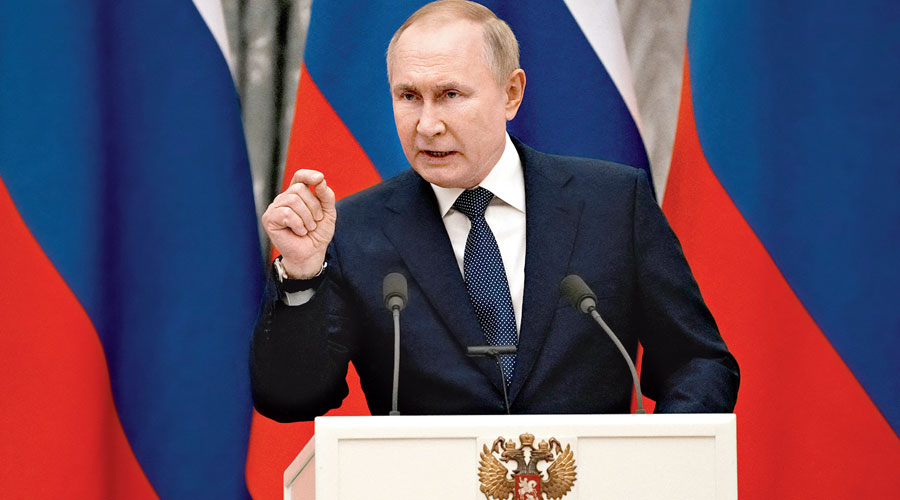Ivan Kononov, a senior lieutenant in the Russian marines, loved to cook. He made Italian food for his unit in the field, his brother said, and traded rations for spices when he was serving in Syria.
The brother, Aleksandr Kononov, last saw him at the military hospital morgue in the southern Russian city of Rostov-on-Don in March. Lieutenant Kononov had died in a firefight for a steel plant in the Ukrainian port city of Mariupol. He was 34. Walking to the morgue, Kononov recalled, he passed the open gate of a warehouse and glimpsed dozens of black body bags lined up on the floor.
It was only with his brother’s death, Kononov, 32, said in a phone interview, that he started paying attention to the war raging just over 50 miles from his home. And he realised, he said, that his brother had died in a war that “no one needs”.
“If everyone learns everything, there will be protests,” Kononov, who works in a freight business, said, referring to the awareness of the Russian public at large. “And I think that would be for the best. Because this war has to stop. There ought to be no wars at all.”
Six weeks after President Vladimir V. Putin’s invasion of Ukraine, many Russians remain in the dark about the depth of their country’s losses — and about the carnage and brutal atrocities that their military is inflicting as it retreats in the north. But increasingly, the reality of war is intruding in the lives of regular families when death notices and black body bags arrive, causing some, like Kononov, to question the war.
For others, though, the grim news of casualties is only hardening a determination to defeat Ukraine and support Putin’s conflict with the West.
“If America didn’t supply weapons to the Ukrainian Nazis, then there would be no deaths of our young guys,” Aleksandr Chernykh, who lost his 22-year-old son, Luka Chernykh, a corporal in military intelligence, said in a phone interview. “My personal opinion is we should just whack America with a nuclear bomb and that’s it, so that they stop getting involved in other countries’ business.”
Whether the growing personal pain of war weakens the public’s resolve for rallying around the Kremlin could help determine the future of the conflict. A recent survey by the independent pollster Levada found that 35 per cent of Russians were paying little or no attention to events in Ukraine.
Russia last announced casualties from the war on March 25, setting the count at 1,351 deaths. American officials said last month that a conservative estimate put the Russian death toll at more than 7,000 people. The Russian service of the BBC on Wednesday said it had counted 1,083 military deaths that had been announced by local officials or in the local media across Russia.











